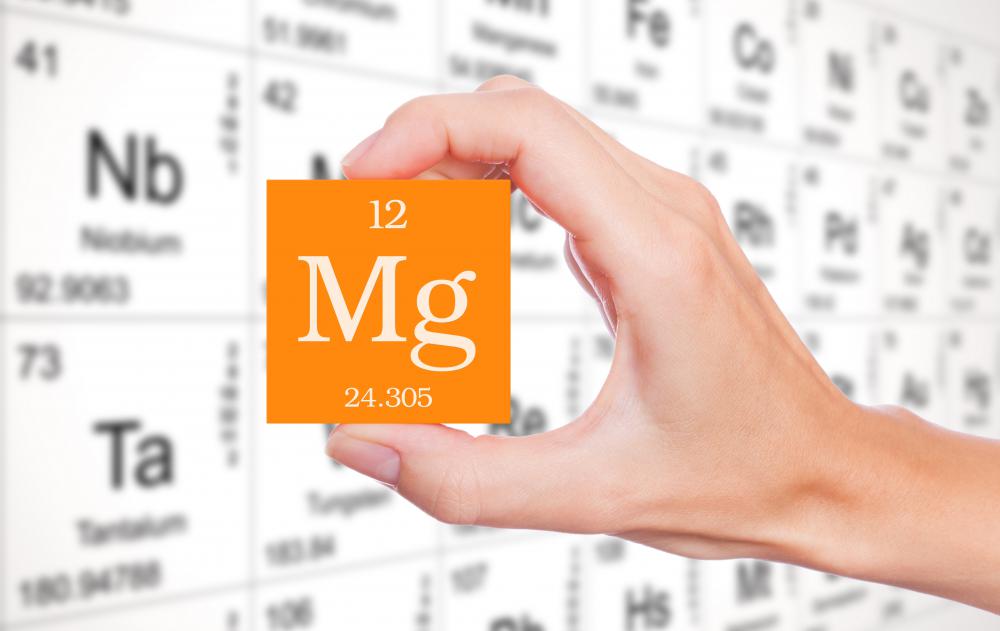At WiseGEEK, we're committed to delivering accurate, trustworthy information. Our expert-authored content is rigorously fact-checked and sourced from credible authorities. Discover how we uphold the highest standards in providing you with reliable knowledge.
What is Hypomagnesemia?
Hypomagnesemia is a condition marked by low blood levels of magnesium. The kidneys control magnesium blood levels, but poor kidney function may result in magnesium depletion. Multiple conditions can cause poor absorption of magnesium, and the result, hypomagnesemia, is frequently a serious medical condition.
One of the greatest risk factors for hypomagnesemia is hospitalization. About 10% of those hospitalized in regular wards have hypomagnesemia. The figure jumps alarmingly to about 60% of patients who are in intensive care units. Premature babies stand out as one of the highest risk groups because of long hospitalizations in intensive care.

These high numbers are thought to be caused by the common practice of giving intravenous fluids, without magnesium supplementation, to patients in hospitals. The kidneys have a difficult time processing the fluid, and exhibit some degree of renal insufficiency. Hypomagnesemia is particularly troublesome among premature babies, as they may already exhibit some renal insufficiency.

Alcoholics make up the second largest population who experience hypomagnesemia. Again, the kidneys, and the liver, are compromised. Alcohol is a toxin, and kidneys function to reduce toxins. When alcohol in large amounts is introduced daily into the system, the kidneys become less successful in eliminating toxins, gradually resulting in poor absorption of magnesium.
About 80% of patients who have just suffered a heart attack will develop hypomagnesemia. Those with chronic diarrhea may also suffer from this condition. Diabetics, too, have high risk of developing hypomagnesemia.

In addition, heart medications like digoxin can interfere with the absorption of magnesium. Diuretics like Lasix® can also deplete magnesium blood levels. Certain antibiotics may cause hypomagnesemia. Others presenting with hypomagnesemia simply do not have enough magnesium in their diet, causing low blood levels. Populations without access to quality nutrition, or anorexics and bulimics, fall into this category.
Symptoms of hypomagnesemia include severe tachycardia, behavior changes like confusion or agitation, and in some cases pancreatitis. Treatment depends on the underlying conditions.

When patients are too ill to eat, magnesium enriched fluids may be added to their diet. Mild cases allow for oral supplementation. Naturally, behaviors that result in this condition, like alcoholism or anorexia, should be treated when possible. If a patient is on medications to treat heart failure or diabetes, magnesium supplementation is helpful to prevent developing hypomagnesemia. When common causes like poor nutrition and alcoholism are ruled out, additional tests to evaluate renal function may be necessary.

In most cases, hypomagnesemia can be reversed once diagnosed. Unfortunately, not all hospitals and physicians consider checking for low levels of blood magnesium. They may evaluate symptoms but not causes. In these cases, those affected may need to play doctor and ask for the test.
AS FEATURED ON:
AS FEATURED ON:















Discuss this Article
Post your comments